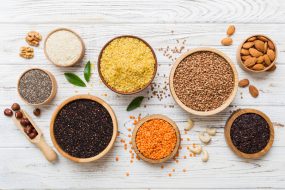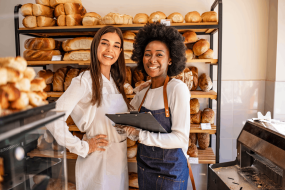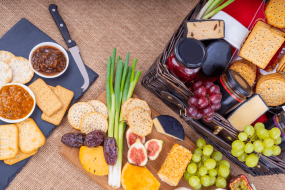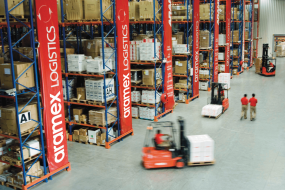

If you’ve ever wondered how top-ranked FMCG brands got through the pandemic unscathed, this article may spark some ideas around how you can move a brand from surviving to thriving in 2023 and beyond.
Aramex FMCG shipping and logistics
Johnson & Johnson, Nestle, Procter & Gamble, PepsiCo, and JBS are among the top FMCG brands that have managed to build momentum and maintain their market share in a rapidly changing world. Here’s what we can learn from them!
FMCG lesson 1: Culture comes first with FMCG brands
The term ‘company culture’ is often loosely used to describe work functions and foosball tables, but Johnson & Johnson are taking employee wellness, culture and support up a notch. Not only have they increased (paid) leave for parents and military service members, but they’ve upskilled over 1,250,000 healthcare professionals. Johnson & Johnson are genuinely dedicated to changing the trajectory of health for humanity and are reaping rewards for it.
Related Article: 3 Winning FMCG Strategies For A Post-COVID World
FMCG lesson 2: Adapt to new consumer values
Consumers are shifting their purchasing patterns to be more conscious of their wallets, their personal health, and the wellbeing of the planet. A recent McKinsey study revealed that millennials are almost four times more likely than baby boomers to avoid “major food brands”. Younger generations are informed and influenced by friends, trends and “woke” culture. In response to this shift, Nestle’s product portfolio has expanded to resolve almost every consumer concern – from compostable coffee capsules and affordable plant-based alternatives, to adapting baby food to enhance brain development.
Millennials are almost four times more likely than baby boomers to avoid major food brands.
FMCG lesson 3: Drive innovation according to context
The FMCG sector needs to fully embrace technology in order to gain a competitive edge in 2023. Digital experiences are flooding us with dopamine, and it’s becoming increasingly difficult to remain top of mind in the age of information. According to P&G CEO, Moeller, “Success in our industry comes with a mindset of constructive disruption, a willingness to change, adapt and invest in long-term technologies.”
“Success in our industry comes with a mindset of constructive disruption, a willingness to change, adapt and invest in long-term technologies.”
P&G CEO – Jon R. Moeller
Related Article: Strategies To Sell FMCG With Short Shelf Life Profitably
FMCG lesson 4: Maintain accountability and consciousness
If the pandemic wasn’t enough to shift the FMCG industry, the topic of global warming will. The more conscious consumer is willing to make sacrifices, but won’t compromise on quality and flavour. Top brands are pioneering quality products that are good for the planet and people. One of PepsiCo’s latest innovations, ‘Off The Eaten Path’, was developed in response to the increased interest in plant-based snacking. Pepsico’s understanding of their consumers and ability to diversify their offering will be key to their sustainable growth.
FMCG lesson 5: Build aligned relationships
JBS has taken initiative to foster trust, respect, integrity, and openness with its stakeholders wherever they can. The company supports its manufacturers and suppliers by providing technical and management assistance as well as boosting suppliers’ efforts to become more sustainable. Strong bonds with stakeholders like logistics companies that work sustainably are vital for any brand. This ensures that values are congruent across the board.
Key takeaway
It’s becoming increasingly difficult for FMCG brands to satiate elevated consumer standards, but human-focused products and initiatives are bound to push us all towards living more fulfilling lives at home and at work. As these brands show us, you simply can’t go wrong when you embrace a more conscious and sustainable path in business.




